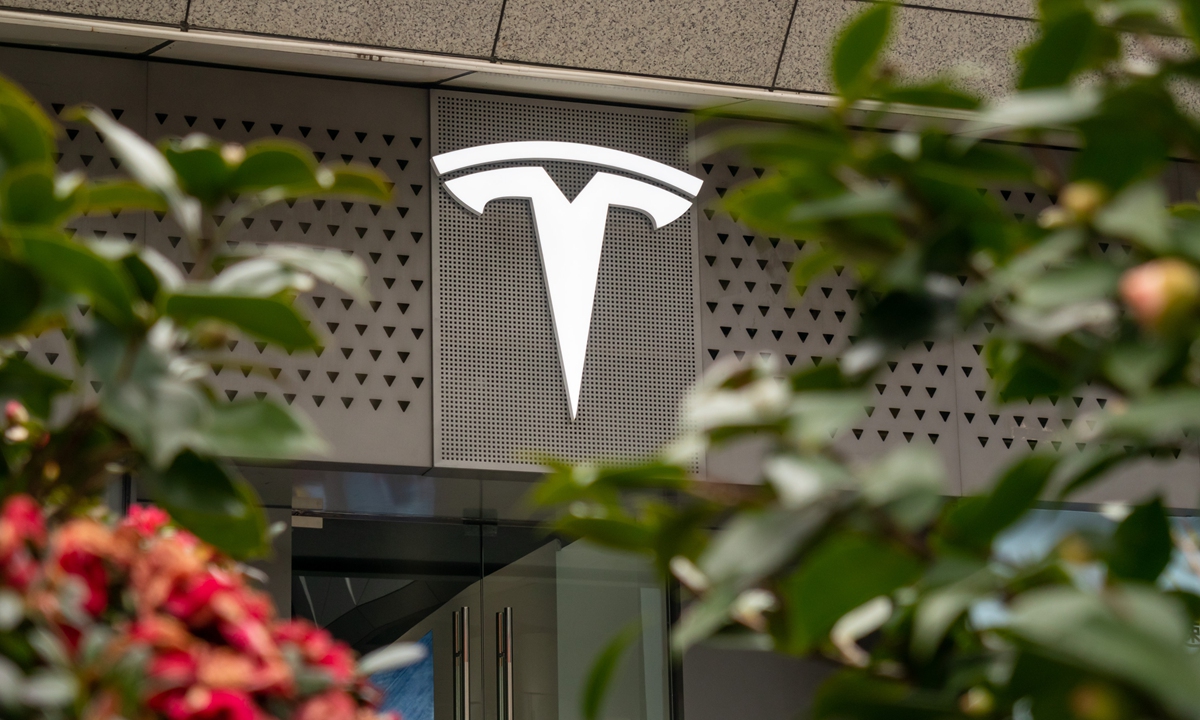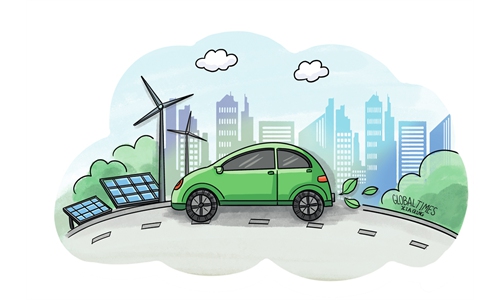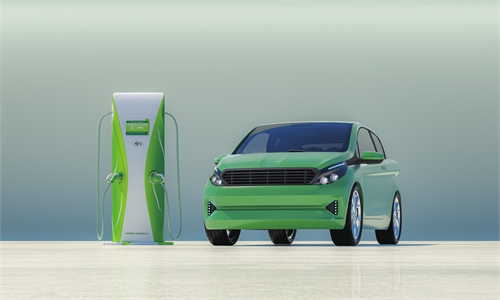
Tesla experience center in Shanghai, China Photo: VCG
Weeks before China is going to end its subsidies for electric and hybrid cars, multiple new-energy vehicle (NEV) brands are seeing their car deliveries soar in the mainland market as customers try to catch the last NEV subsidies.
According to data released by the China Passenger Car Association (CPCA), Tesla's Shanghai plant is expected to deliver more than 100,000 vehicles in November, surging by about 40 percent compared with October and 89 percent on a yearly basis.
This is also setting a new record among luxury carmakers in China in terms of single-month deliveries, according to a document sent by Tesla to the Global Times on Monday.
In the first 11 months this year, Tesla's Shanghai plant delivered a total of more than 650,000 cars, the document noted. This, plus deliveries from the company's overseas factories, made it the best-selling brand in many Western countries, the company noted.
Apart from Tesla, some other NEV brands have also seen their deliveries soar to a single-month record recently. Domestic NEV brand Li Xiang delivered 15,034 cars in November, up 49 percent compared with the previous month.
Nio also set a record with 14,178 deliveries in November, up 40.9 percent on a monthly basis and surging by 30.3 percent on a yearly basis.
Customers are rushing to buy NEV cars ahead of the end of China's NEV subsidy policies. Before the end of this year, consumers can get subsidies ranging from 4,800 yuan ($690) to 12,600 yuan when buying an NEV car. The subsidies will end next year.
Zhang Xiang, visiting professor with the Engineering Department of Huanghe Science and Technology University, said that ending the NEV subsidy is prompting consumers to buy them in advance, and NEV companies are benefiting from this policy at the current time.
He predicted that NEV sales growth will slow down next year after the subsidy policy ends, but will still likely maintain a growth rate of about 60-70 percent.
"In general, the trend of NEVs replacing traditional fuel cars will continue," he told the Global Times, predicting that NEVs will likely account for 30 percent of overall car sales next year.
In October, the NEV market share in China reached 28.5 percent, data released by the China Association of Automobile Manufacturers showed.



